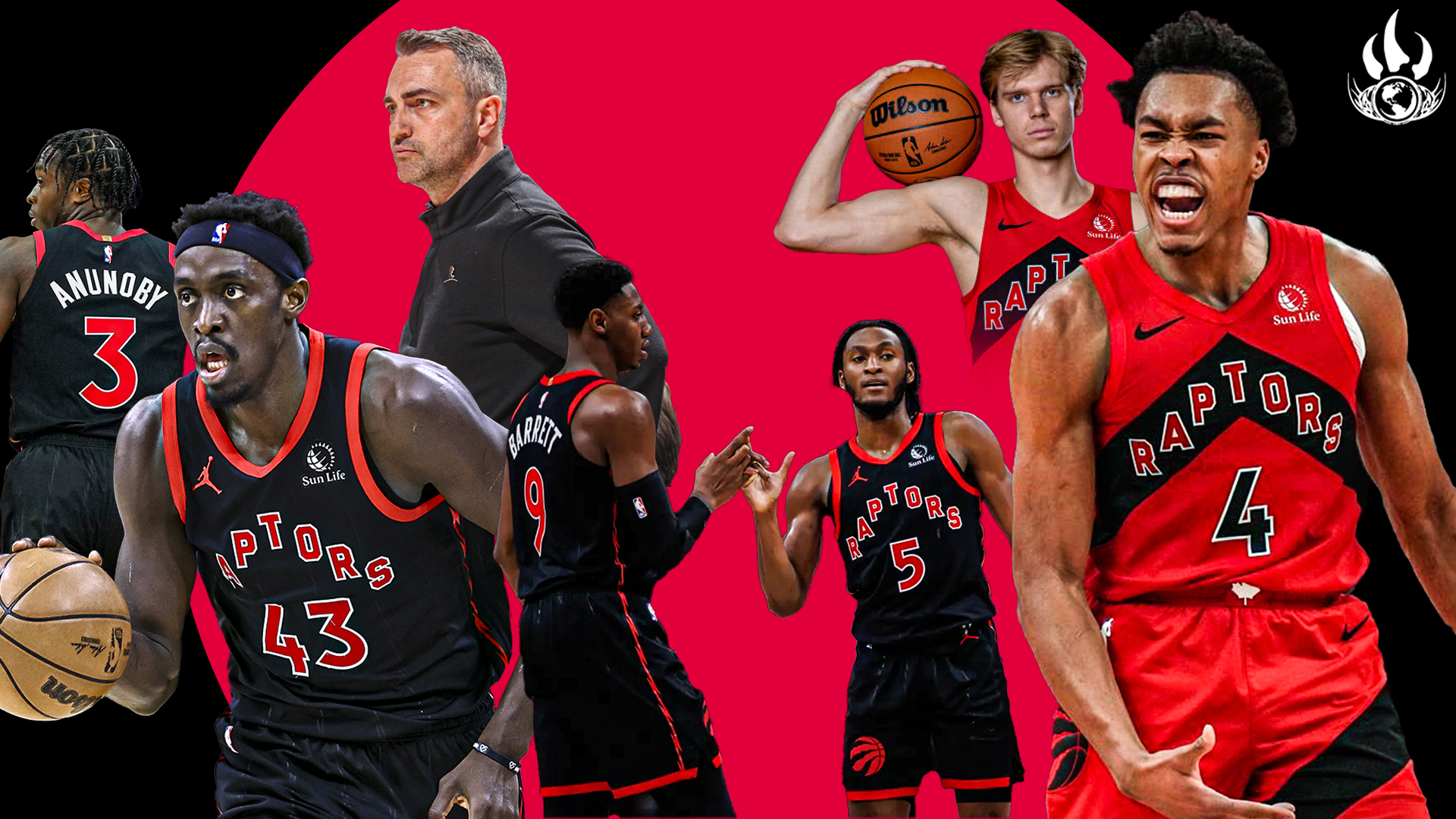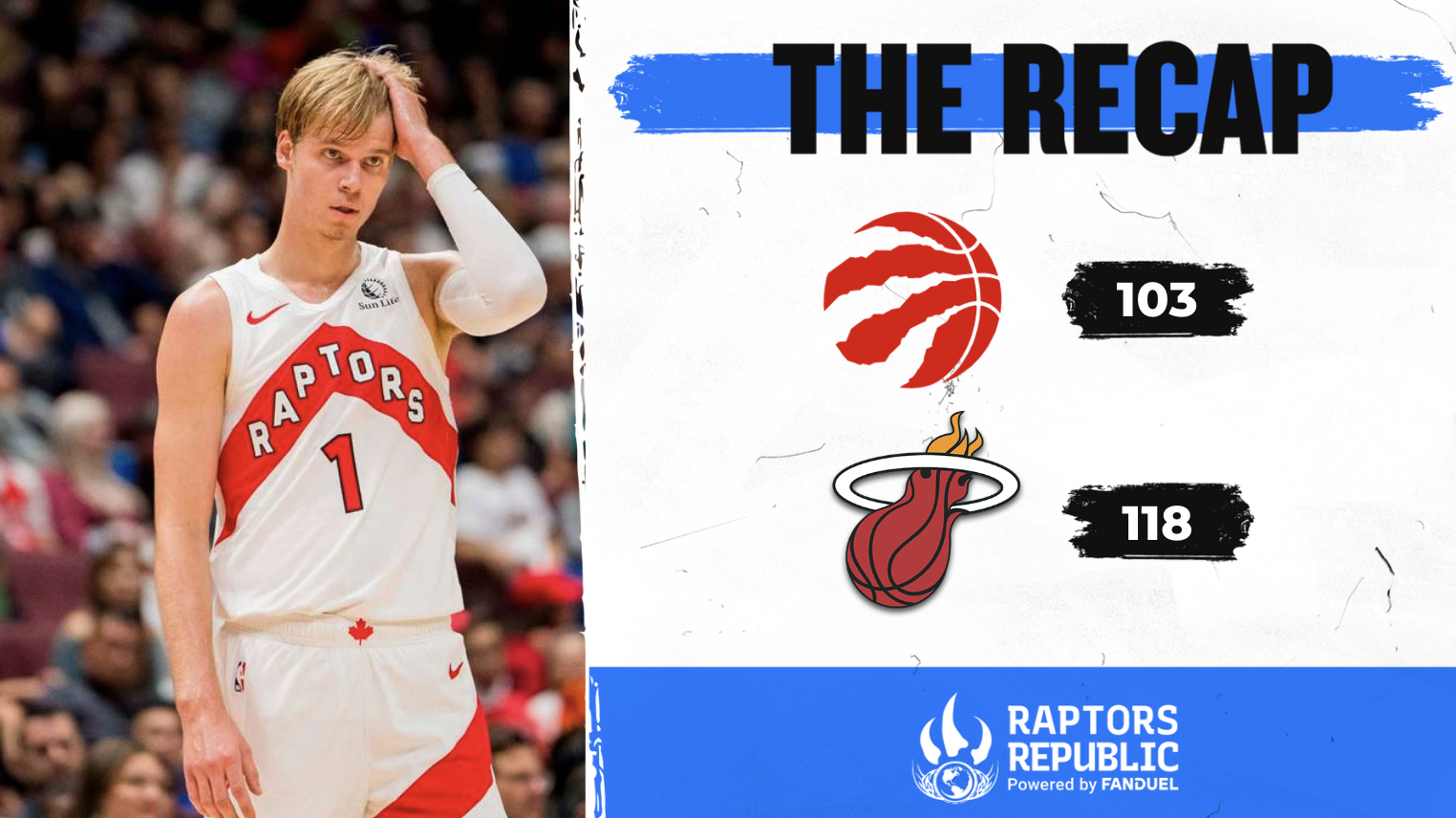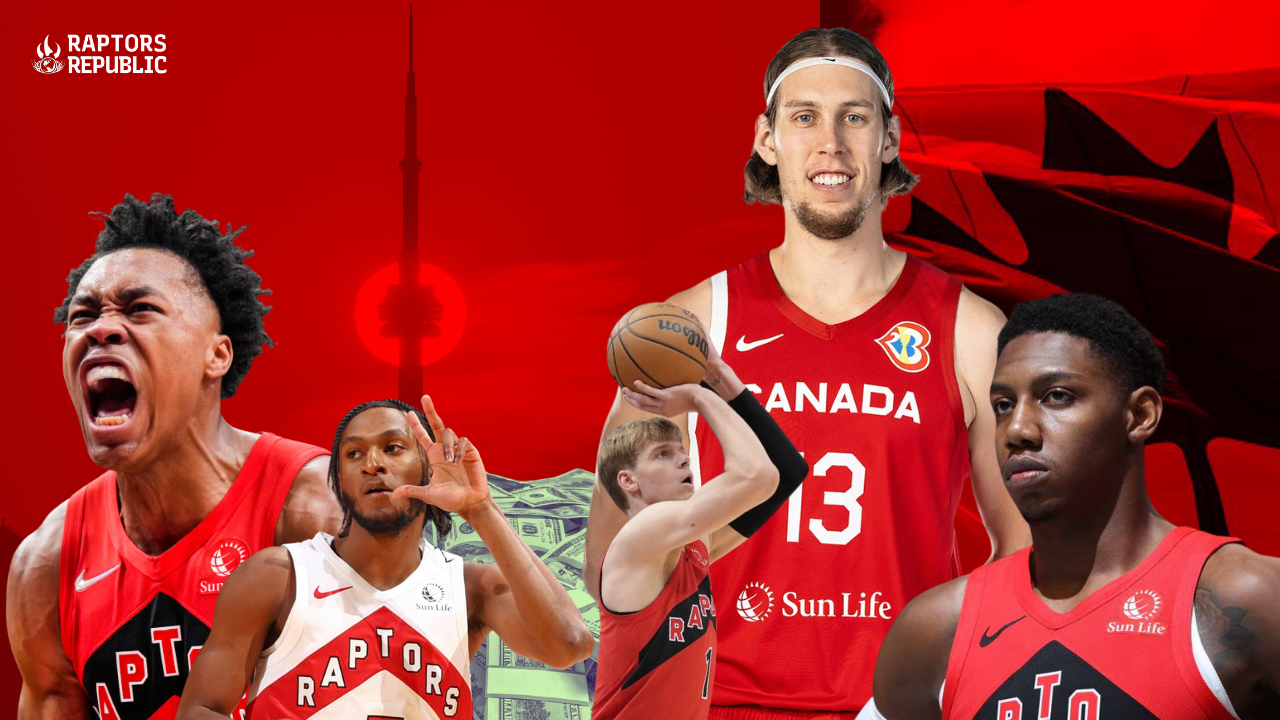This wasn’t the Toronto Raptors’ first losing season. But it was Toronto’s first losing season since Kyle Lowry without frustration, pain, anger. When the Raptors lost in Tampa, lost last season, it was accompanied by enormously angry players and coaches, questioning their jobs, their performances, their identities. They hated losing. These Raptors weren’t happy losing, by no means. But they were more or less fine with it. Expected it. The team remained positive (which may or may not be a good thing). That was new.
It wasn’t the only new thing this year. The 2023-24 season opened with a bizarre lawsuit, completed a major trade with the plaintiff in the middle, and ended with the banishment of a promising young player who is alleged to have been betting on or leaking betting information about his games. Stranger than fiction is an understatement.
Before the season began, Masai Ujiri promised Toronto’s selfishness from 2022-23 would be gone. He told the truth, in his own way. (If there was any selfishness, that is.) But what he called selfishness — isolation play, post-ups, zero-pass possessions — turned into high rates of passing, buzzing possessions, and more paint touches and kickouts than almost any team in the league. Darko Rajakovic did implement a modern offense, changing a team that was firmly stuck in the past. Toronto’s expected efficiency based on shot selection was near the top of the league. But plenty left the team along with ‘selfishness.’ Toronto’s spirit, or culture, is far different from what it was in years past. What is it now? We’re yet to find out.
On one hand, of course the Raptors changed their identity. They changed their whole damn roster. They said goodbye to Fred VanVleet before the year started, and then more mainstays in OG Anunoby and Pascal Siakam in the middle. Those three were the successors to Kyle Lowry and DeMar DeRozan, the bridge to the future. It was time. But that didn’t make the departures and goodbyes not hurt.
There were so many parts to Toronto’s season, so many seasons within seasons, Russian nesting stretches of different players, results, goals. The Raptors wanted to win to start the year, expected swapping Dennis Schroder for VanVleet and Rajakovic for Nice Nurse would be an improvement. It was not. And as the losses piled, and a variety of free agency deadlines neared, it was clear what had to happen. Schroder played well for Toronto, but his lack of spacing hurt. The first domino to fall was Anunoby.
It seemed for a short stretch like the Raptors might just stop there. Scottie Barnes had emerged as Toronto’s foundation, and Immanuel Quickley and RJ Barrett fit well. Siakam went on a hot streak from deep and quietly, for a brief stretch, settled in as one of the league’s most efficient high-volume scorers on the new team. But it did not last. Siakam went to Indiana. Toronto lost its moon. Toronto dumped Schroder for nothing.
Then came BBQ season, grilling season. Quickley, Barrett, and Barnes became the core. And with whirring ball movement, cutting, shooting, and finally the personnel to fit Rajakovic’s scheme, they won their minutes together with a very solid net rating of 3.3. When you added in Jakob Poeltl, Toronto’s net rating was 11.5 — that would have been one of the better four-man groups in the league. The team wasn’t winning a lot of games, but there was a vision in place. That, too, was not to last.
Injuries and family loss meant the three could no longer play together. And then neither could Poeltl. Or others of Toronto’s core. Gary Trent jr. and Bruce Brown missed time. And Toronto’s revival ended early. And the losing started, over and over, with Toronto simply unable to compete with its opponents. The Raptors, for a time there, were not fielding NBA talent.
And so the Raptors came into the season like lions and left like lambs. It wasn’t the players’ fault. Toronto couldn’t compete without shooting. And then it couldn’t compete because Malik Williams and Kobi Simmons just can’t be expected to beat NBA veterans. If anything, the losses belonged mostly to Ujiri and Bobby Webster, who paid for their mistakes of past seasons with the record of this one.
But the NBA sees no real death. Everything is reborn over a long enough time scale. And barbeque season will return shortly after a short break of rest and relaxation and healing. The Raptors have a foundation of success. Or at least, they found one that seems like it should work in the future. If this season is to have meant anything, it is that. And it happened because so many of Toronto’s core players — the new core, that is — found ways to improve.
First and foremost, Barnes became the All Star and dynamic, versatile star that Toronto needed. He became a shooter. He became an initiator. His defense was frenetic, an exclamation mark. His passing remains among the best in the league. He will be one of the better players in the league for the next decade, perhaps one of the very best if he keeps improving.
Quickley became a firebrand point guard. He’s driving better, passing better, than he ever has in his career. His shooting remains deadly. RJ Barrett evolved from a toxic asset (he never was that) to an immovable force and unstoppable object. Every aspect of his game has improved in Toronto.
There were quieter individual improvements, too. Gradey Dick was unplayable to start the year, looking like a bust. And he has become a clear contributor to end the season, his shooting and cutting and general understanding of the game proving to be clear advantages. Ochai Agbaji, acquired at the trade deadline as Toronto added talent while tearing down the team, emerged as one of the team’s best wing defenders. Even during the lost weeks, players improved.
Still, there will be a huge number of players on this year’s team who won’t return next season. Trent will be an upcoming free agent, and I’m doubtful he’ll return to Toronto. I expect he’ll likely take a pay cut on the open market as compared to his current salary, and players very rarely take a pay cut and remain with the same team. There is a team option for Brown. Jordan Nwora is an unrestricted free agent. Malik Williams’ new contract is only guaranteed for the remainder of the 2023-24 season. Chris Boucher was in the doghouse, and then tore his MCL upon returning, and deserves to be set free and playing real minutes for a good team. It’s unlikely that all those players are Raptors next year. Yet Toronto can survive change at the back end of the roster. Perhaps it will be for the best.
Toronto was a team built on size and athleticism and short on passing and shooting. Now it’s a team built on passing and shooting and short on size and athleticism. One issue solved, another in its place. There is still much that needs solving.
The decisions that Ujiri and Webster punted down the road for so many years were finally made in 2023-24. The season itself paid the price. Perhaps the team should have made its choices earlier. Maybe if it acquired a center before Poeltl, or if it tore down before this year… but no, no point dealing with ifs. Everything revives in the long term in the NBA. And the Raptors only need to wait until next October. Barnes will bring hope.
Because there is positivity on the horizon. This was a long season, a lost season, an exhausting and frustrating season. But it laid track for everything that is about to come. This year was necessary, no matter how hard it was. We The North ended a long time ago, and this season of change, of liminal exchange, of temporal drift is, mercifully, over. It’s time for the barbecue era.



